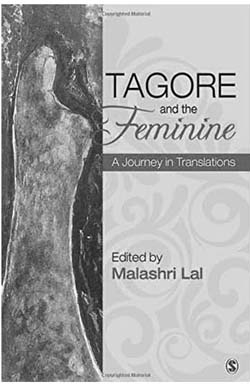Walt Whitman, the American poet, essayist and humanist, had famously declared, ‘Do I contradict myself? Very well, then I contradict myself, I am large, I contain multitudes.’ Indeed it takes a brave man, and a wise one too, to not merely concede but celebrate the contradictions within himself. In India we tend to be apologetic about contradictions, especially among those we revere. And in the case of the much loved Bard of India, Rabindranath Tagore, the contradictions become problematic, to say the least. For far too long scholars have skirted around the problem areas and instead focused on those qualities of Tagore’s vast and varied ouvre that present no, or little, cause for dissent, namely his music, his aesthetics and his language. But those other areas, such as Tagore’s views on modernity, nationalism and most notably his views on gender have continued to pose several problems and have remained largely beyond the pale of sustained academic scrutiny.
October 2015, volume 39, No 10

